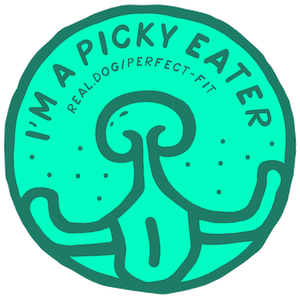
Canine Nutrition Epidemiology: Understanding the Interconnected Health of Dogs
Canine Nutrition Epidemiology (CNE) provides a scientific framework for understanding and addressing the interconnected nature of canine health issues caused by nutrition. By focusing on real food as the central solution and considering the epidemiological relationships between allergies, cancer, dental disease, obesity, and other ailments, this approach aims to improve overall canine health and prevent the worsening of these conditions.
This approach can help elucidate the relationships between allergies, dental health, cancer, obesity, other chronic ailments, and feeding real food.
Combat Canine Periodontal Disease
DISCOVER DOG DENTAL HEALTH
Periodontal disease in dogs can lead to major health complications. Uncover the importance of proper oral hygiene.

 DID YOU KNOW?: 80% of dogs experience dental issues by age 2.
DID YOU KNOW?: 80% of dogs experience dental issues by age 2. COST OF CLEANING: Dog teeth cleaning can range between $500-$3000, while human cleaning costs $75-$200.
COST OF CLEANING: Dog teeth cleaning can range between $500-$3000, while human cleaning costs $75-$200. THE REALITY: Once fully developed, periodontal disease cannot be reversed
THE REALITY: Once fully developed, periodontal disease cannot be reversed
Protect Your Dog From Allergies
EXPLORE CANINE ALLERGY SOLUTIONS
Allergies in dogs are often triggered by their food. Learn how diet can make a difference.

 COMMON CULPRITS: Breeds like Beagles, Boxers, and Golden Retrievers are more prone to allergies.
COMMON CULPRITS: Breeds like Beagles, Boxers, and Golden Retrievers are more prone to allergies. EAR TROUBLE: Over 50% of allergic dogs suffer from ear complications.
EAR TROUBLE: Over 50% of allergic dogs suffer from ear complications. DIETARY DEFENSE: A quality diet can greatly reduce or even eliminate many allergies.
DIETARY DEFENSE: A quality diet can greatly reduce or even eliminate many allergies.
Nourish a Healthy Weight in Dogs
DIVE INTO CANINE WEIGHT MANAGEMENT
A balanced diet and regular exercise can fight dog obesity. Learn the steps to keep your furry friend fit.

 STAGGERING STATS: In 2017, 56% of dogs were overweight or obese, impacting their health and lifespan.
STAGGERING STATS: In 2017, 56% of dogs were overweight or obese, impacting their health and lifespan. OBESITY OUTCOMES: Overweight dogs face challenges from kidney issues to reduced respiratory function.
OBESITY OUTCOMES: Overweight dogs face challenges from kidney issues to reduced respiratory function. KIBBLE THE CULPRIT: Despite feeding guides, kibble may have hidden fats and carbs contributing to weight gain.
KIBBLE THE CULPRIT: Despite feeding guides, kibble may have hidden fats and carbs contributing to weight gain.
Fight Against Canine Cancer
EXPLORE CANINE CANCER PREVENTION
Prioritize proper nutrition to strengthen your dog's defense against cancer.

 CANCER'S REACH: 50% of dogs over 10 encounter some form of cancer.
CANCER'S REACH: 50% of dogs over 10 encounter some form of cancer. EARLY DETECTION: Start preventing cancer with proper nutrition.
EARLY DETECTION: Start preventing cancer with proper nutrition. DIETARY DETOUR: Modern kibble diets can contain up to 74% carbohydrates, a shift from the real canine diet.
DIETARY DETOUR: Modern kibble diets can contain up to 74% carbohydrates, a shift from the real canine diet.
Holistic Approach
Education: We emphasize the importance of real food in preventing and managing health issues.
Diet Plans: Learn to develop individualized plans focusing on real food.
Prevention: We highlight the preventive role of real food.
Monitoring: Conduct regular health check-ups to adjust diet plans.

Central Solution: Real Food
Real Food: Focus on a variety of biologically appropriate fresh, whole, natural, and minimally processed foods to provide balanced nutrition for dogs.


Interconnected Health Issues
- Nutritional Strategy: Eliminate food allergens, add omega-3 fatty acids through fresh foods (small oily fish) to balance the omega-6:omega-3 ratio, and support gut health with probiotics and prebiotics.
- Impact: Reduces immune system stress and inflammation, lowering cancer risks, dental issues, and obesity.
- Î
- Nutritional Strategy: Emphasize cartilage and antioxidant-rich real foods; reduce processed and carcinogenic foods.
- Impact: Nutritional support during treatment; weight management reduces cancer risk.
- Nutritional Strategy: Promote fresh foods supporting oral health; reduce sugar and acidic foods.
- Impact: Prevents systemic inflammation and poor eating habits, reducing obesity risk.
- Nutritional Strategy: Focus on nutrient-dense, low-calorie fresh foods; promote balance over time and variety in meals.
- Impact: Reduces inflammation and risks of allergies, cancer, and dental issues.
Other Ailments (Outer Ring)
- Nutritional Strategy: Address health concerns like diabetes, heart disease, and digestive disorders through tailored dietary strategies.
- Impact: Mitigates additional health risks and complications, supporting overall health and preventing the exacerbation of allergies, cancer, dental disease, and obesity.
Other Ailments
Diabetes
- Cause: Obesity and diets high in starches can impair insulin regulation and glucose metabolism.
- Nutritional Strategy: Fresh real food low in simple carbohydrates and high in fiber; controlled portions and consistent feeding schedules.
Heart Disease
- Cause: Obesity can increase the risk of cardiovascular problems.
- Nutritional Strategy: Diets should include low carbohydrates, omega-3 fatty acids, taurine and carnitine amino acids, medium-chain triglycerides, and antioxidants.
Digestive Disorders
- Cause: Ultra-processed foods, foods high in starches and lacking insoluble fiber to support the gut microbiome, can lead to digestive issues.
- Nutritional Strategy: Fresh food diets containing pre and probiotics and high-quality lean muscle meat support a balanced gut microbiome.
Kidney Disease
- Cause: Poor-quality proteins, ultra-processed foods, and dehydration can exacerbate kidney function decline.
- Nutritional Strategy: Diets low in phosphorus and moderate levels of high-quality lean protein; adequate hydration.
Skin & Coat Conditions
- Cause: Imbalance of the gut microbiome due to an inappropriate diet with excessive levels of omega-6 and carbohydrates, poor-quality proteins, and deficient in vitamins A and E.
- Nutritional Strategy: A species-appropriate diet that includes small fatty fish with high levels of omega-3, proper levels of vitamins and minerals, and high-quality protein. Probiotics can be added to the diet to support the gut microbiome.
Joint Disorders (Osteoarthritis, e.g., Arthritis)
- Cause: Poor-quality foods with high levels of inflammatory ingredients can exacerbate joint issues. Diets high in carbohydrates can lead to obesity, which further complicates joint issues.
- Nutritional Strategy: Weight management focuses on real foods containing glucosamine, chondroitin, and omega-3 fatty acids.
Behavioral Issues
- Cause: Poor-quality diets that create gut microbiome imbalances prevent the production of essential hormones and neurotransmitters, significantly impacting behavior, energy levels, and cognitive function.
- Nutritional Strategy: Balanced, fresh food diets rich in omega-3 fatty acids, antioxidants, high-quality protein, and insoluble fibers to support the gut microbiome.
It's an investment for your dog's life.
 We craft our food in small batches, air-dry it in one single step, and deliver it fresh.
We craft our food in small batches, air-dry it in one single step, and deliver it fresh. We guarantee that if your dog doesn’t love a treat, we’ll replace it for free.
We guarantee that if your dog doesn’t love a treat, we’ll replace it for free.

















